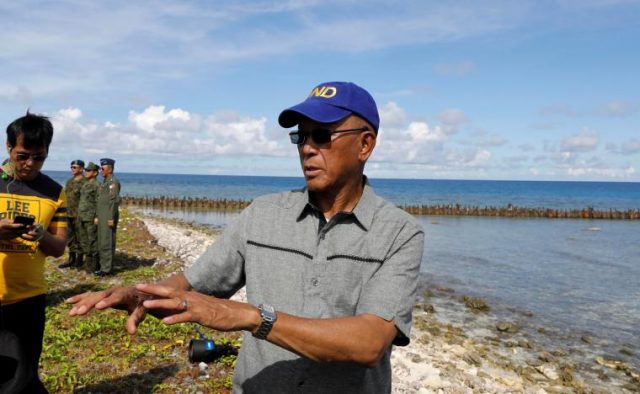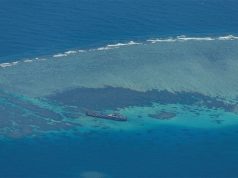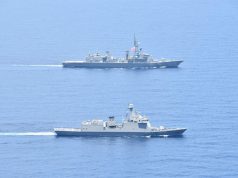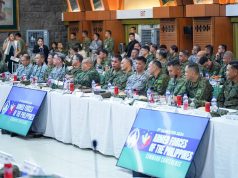
THITU ISLAND, SOUTH CHINA SEA – If the Filipinos on the remote South China Sea island of Thitu had binoculars, they might just be envious of how their neighbors on the next island live.
Just 15 miles (24 km) across the shimmering sea from this rundown outpost of the Philippines lies a different world shown by an unbroken line of new, four-storey white buildings. Radar towers and a lighthouse complete Subi Reef, a mini city China has raised from the sea at an astonishing pace since 2013.
Subi symbolizes China’s increasingly assertive claim to most of the South China Sea, a claim it reinforces in building manmade islands from dredged sand and equipping them with runways, hangars and surface-to-air-missiles.
For the 37 Filipino families who call Thitu their home, however, life is basic with just a few buildings, no television or internet, and no shops or street-side eateries.
There isn’t even a street, just a dirt track used by the island’s one vehicle – a small truck.
At only 37 hectares (0.37 sq km) the coral-fringed Thitu, known to Filipinos as Pagasa, is the biggest of the eight reefs, shoals and islands the Philippines occupies in the Spratly archipelago, 280 miles away from the mainland.
But Thitu’s inhabitants have a strategic purpose – preserving a Philippine claim of sovereignty in the face of a resurgent China.
According to the Asia Maritime Transparency Initiative, China will soon be capable of deploying fighter jets on three reefs, including Subi.
By comparison, Thitu’s military muscle is a few dozen rotating troops with small arms, and a dirt runway through a patch of grass.
Jenny May Ray, 24, has taught for one year at the island’s school. She says Thitu’s residents are heroes.
“We should be thankful for their sacrifices for staying on an island far away from civilization, away from their loved ones and families and I hope some day, something can be written about them in our history,” she said.
“Pagasa will see progress one day and they will not be forgotten because they have a big role in protecting the island.”
Urgent upgrades
But the islanders want more in return. Ray said the school needed improvements, the childrens’ diets are poor, and they are short on books.
The Philippine government is wary of China’s ambitions and knows life needs to be better for the Filipinos who get free food and housing in exchange for maintaining the four-decade Philippine occupation.
Taiwan, Vietnam and Malaysia also have communities in the Spratlys, but they enjoy far better living standards
Defense minister Delfin Lorenzana visited Thitu with journalists aboard a C-130 plane on Friday to inspect sites earmarked for P1.6 billion ($32.1 million) of development, including a small fishing port, a beaching ramp, desalination facilities, and runway repairs.
“You saw Subi Reef a while ago and we really lagged behind,” he said.
“We are now the last. You saw Vietnam’s (islands) when we passed by the area, it’s already very built-up a long time ago. We should have done this before.”
Lorenzana and a planeload of day-tripping troops and airmen joined villagers for a ceremonial raising of the national flag, a staple of daily life in the Philippines’ most isolated village, where patriotism comes before anything else.
Within an earshot is a school of just over 30 children. A teacher leads fifth-grade students in reciting songs about their pride in Thitu belonging to the Philippines.
Change comes slowly on the island, in sharp contrast to China’s activities. Since Reuters last visited Thitu two years ago, Subi Reef has transformed from a single building and cranes on an artificial sand bank to what looks look a forward operating base with its own town.
China insists these islands are for defensive purposes and objects strongly to planes or boats that come near them.
Lorenzana said his plane received a warning over the radio from Chinese on Subi as it approached Thitu.
He described it as “procedural”.
Thitu islanders seem less concerned about China’s military buildup than they do the storms that could delay the next boatload of supplies of food, or petrol needed for generators that support the tiny output from its few solar panels.
For many islanders, boredom is the biggest problem.
Daniel Yungot, an army private, says he plays a lot of basketball now.
“We entertain ourselves,” he said. “We do anything just for the day to pass.”









